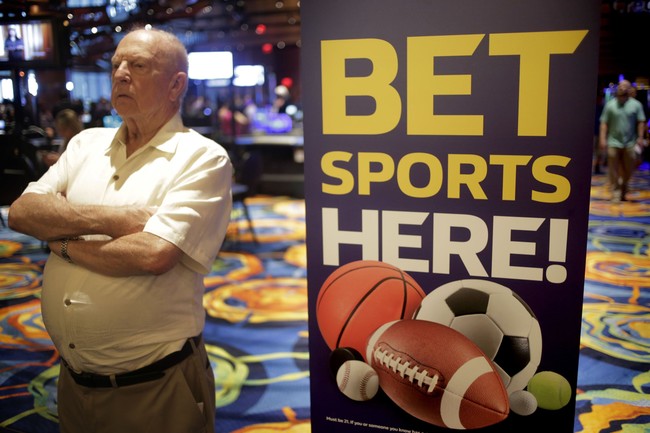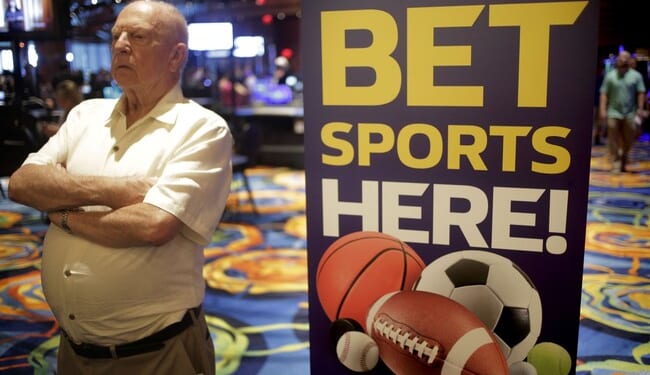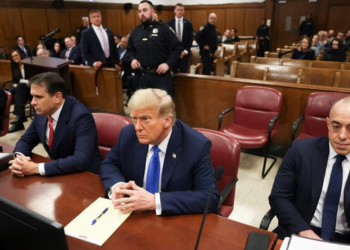
Gambling has invaded every area of sports, and it has grown so much that it’s inescapable. You can’t watch a sporting event on TV or listen to the radio without encountering ads for gambling; I even received a slick, glossy packet from a sportsbook outfit in the mail recently.
Betting on sports has changed drastically since the days of Pete Rose betting on games and receiving a lifetime ban from baseball, and the sophistication of today’s gambling combined with the ease of online betting has made it ripe for more scandals in the sports world. The controversy involving Los Angeles Dodgers phenom Shohei Ohtani and his translator is still unfolding, and the agreements between gambling entities and media outlets complicate the coverage of the story. NBA star Jontay Porter is in some hot water involving gambling as well.
Gambling on college athletics is even more pernicious — not just because it affects athletes but also because it can trap students in the web of addiction. Last year, I wrote about some of the problems that college sports betting brings:
These days, people can bet on more than winners, losers, and point spreads. Modern gambling provides opportunities for bettors to wager on individual athletes’ performance or place parlays on things that have nothing to do with the games themselves. Needless to say, these factors have turned sports betting into a multi-billion-dollar industry.
Colleges have gotten in on the action, partnering with sportsbooks for sponsorship deals, although that tide may be turning away from close relationships between schools and sportsbooks.
[…]
The NCAA is conducting studies about gambling addictions among athletes, but non-athletes are susceptible to gambling problems as well. We’ve already seen how college students can get themselves into deep debt because of the easy availability of credit cards on campus, and the explosion of sports betting has led to similar problems.
For Our VIPs: Alabama’s Baseball Gambling Scandal May Be Just the Tip of the Iceberg
Problems with sports betting on college games have been around for decades, but they’re rearing their ugly heads more often. The University of Alabama fired its baseball coach over a gambling scandal last year, and other controversies surrounding betting on college games have erupted since then.
Now the NCAA wants to intervene. NCAA president Charlie Baker says that he is looking into a ban on prop bets, those bets on specific elements of a game rather than the outcome of the game itself, in college athletics. Thirty-eight states already prohibit prop bets in college sports, but Baker wants to extend those bans to all 50 states.
“The NCAA is drawing the line on sports betting to protect student-athletes and to protect the integrity of the game – issues across the country these last several days show there is more work to be done,” Baker said in a statement released on Wednesday.
The idea of a ban on prop bets isn’t just about stemming the tide of ubiquitous gambling. It could keep players safe from physical harm.
“Some players have been subject to individualized harassment if their play resulted in a prop bet going against bettors, regardless of the outcome of the game,” reports David Ubben at The Athletic. “Baker has previously explored legislation that would create a ‘prohibited bettors list’ of people who were known to harass players and coaches.”
“Sports betting issues are on the rise across the country with prop bets continuing to threaten the integrity of competition and leading to student-athletes and professional athletes getting harassed,” Baker also said. “The NCAA has been working with states to deal with these threats and many are responding by banning college prop bets.”
I admire Baker’s desire to protect college athletes and rein in some of the worst excesses of sports betting. But if the NCAA can’t get a handle on name, image, and likeness (NIL) and the transfer portal, who’s to say the NCAA won’t make things worse before they get better?












